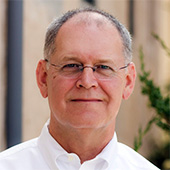Is Obama Planning to Sign Congress' Health Care Reform Bill with Lipstick?
Over the coming weeks, Americans will find out whether the man they elected their president is just a great orator and politician or whether he is also a great leader.
Of the central features of candidate Barack Obama's health care proposal, he said one thing was essential -- a public insurance option to compete with the private insurance industry that is now dominated by a cartel of Wall Street-driven, for-profit behemoths. Another thing Obama said he would not support -- a requirement that all of us be forced by law to buy overpriced health coverage from private insurance companies.
Many of the people who voted for Obama did so because they believed his health care proposal was the best among the field of Democratic candidates and -- no contest here -- far better than the insurance industry-backed plans advocated by the Republicans.
Obama was not alone in calling for a public insurance option. So did Hillary Clinton, among others. About the only thing that distinguished Obama's plan from Clinton's, in fact, was his opposition to forcing all of us to buy health insurance. "Why should we force people to buy something they can't afford?" he asked repeatedly on the campaign trail.
After listening to the speeches he made in Montana and Arizona and to comments made by Health and Human Services Secretary Kathleen Sebelius and Obama's press secretary, Robert Gibbs, on the Sunday morning talk shows, I'm wondering what happened to the guy Americans elected.


 I'm the former insurance industry insider now speaking out about how big for-profit insurers have hijacked our
I'm the former insurance industry insider now speaking out about how big for-profit insurers have hijacked our